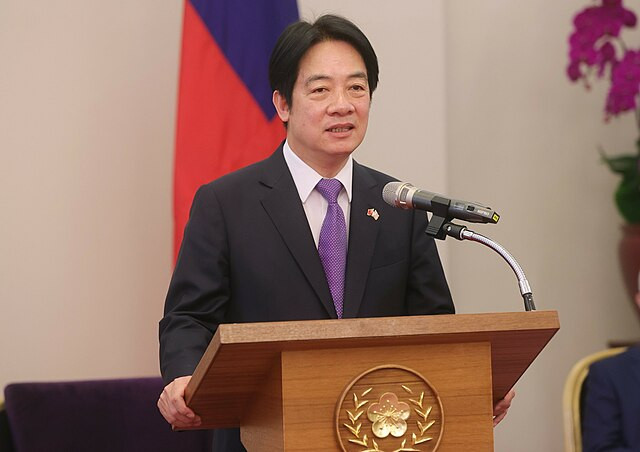Taiwan's new president, Lai Ching-te, has called on China to cease its political and military intimidation against the island and to engage in dialogue rather than confrontation. Sworn in on Monday, Lai emphasized Taiwan's unwavering commitment to democracy and freedom, stating that there can be no concessions on these core values. His appeal to Beijing came amid increasing military incursions by China around the island and heightened tensions in the Taiwan Strait.
In his inaugural address, Lai, a 64-year-old former doctor turned politician, urged China to recognize Taiwan's existence and respect the choices of its people. "I hope that China will face the reality of Taiwan's existence, respect the choices of the people of Taiwan, and in good faith, choose dialogue over confrontation," Lai said. He also called on Beijing to share the responsibility of maintaining peace and stability in the region, highlighting the global concern over potential conflicts.
Lai succeeds Tsai Ing-wen, who stepped down after two terms in office. During her tenure, Tsai navigated Taiwan through significant economic and social developments despite the challenges posed by the COVID-19 pandemic and escalating military threats from China. Lai, who served as Tsai's vice president, is expected to continue her policies while maintaining Taiwan's stance against Chinese aggression.
Beijing has repeatedly denounced Lai as a "stubborn worker for Taiwan independence" and a dangerous separatist. China views Taiwan as a breakaway province and has not ruled out the use of force to achieve reunification. Chinese President Xi Jinping has labeled reunification with Taiwan as a "historical inevitability." Despite these threats, Lai's Democratic Progressive Party maintains that Taiwan is already a sovereign nation and does not seek formal independence.
In response to Lai's inauguration, the Chinese government has not yet issued an official statement. However, China's Taiwan Affairs Office criticized Lai's speech for promoting separatism and relying on foreign forces for support. "We will never tolerate or condone any form of 'Taiwan independence' separatist activities," said Chen Binhua, spokesperson for the Taiwan Affairs Office.
The international community, particularly the United States, has shown support for Lai's administration. U.S. Secretary of State Antony Blinken congratulated Lai, expressing a desire to work with him to advance shared interests and values. "We look forward to working with President Lai and across Taiwan's political spectrum to advance our shared interests and values, deepen our longstanding unofficial relationship, and maintain peace and stability across the Taiwan Strait," Blinken said.
Taiwan's relationship with the United States remains a contentious issue in China-U.S. relations. While the U.S. does not formally recognize Taiwan as a separate country, it is bound by law to provide the island with means to defend itself. President Xi Jinping has emphasized that Taiwan is the most important and sensitive issue in China-U.S. relations.
Amid these tensions, China has announced sanctions against several U.S. companies involved in arms sales to Taiwan. This move underscores the strained relations between the two superpowers and the ongoing geopolitical struggle over Taiwan's future.
Lai's administration inherits a complex political landscape. Internally, Lai faces the challenge of maintaining unity and stability within Taiwan while addressing the external threat posed by China. His predecessor, Tsai, implemented significant reforms and modernized Taiwan's military. Lai has pledged to continue these efforts, focusing on strengthening Taiwan's social safety net and advancing in fields such as artificial intelligence and green energy.
The new president's call for peace and dialogue is a critical stance as Taiwan navigates its path forward. However, the persistent threat from China and the island's strategic importance in global politics ensure that Lai's administration will face significant challenges. As Lai takes the helm, the world watches closely, hoping for a peaceful resolution to the longstanding cross-strait tensions.






